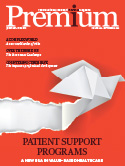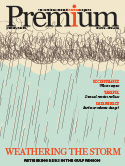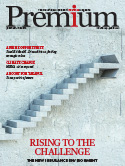New Saudi Re contract credit positive: Moody’s

Moody’s Investor’s Service has commented on the signing of an exclusive reinsurance contract by Saudi Re with the Saudi Arabia insurance industry.
The contract states that Saudi Re will provide coverage to all insurers participating in the inherent defects coinsurance program. Whilst this large reinsurance contract will strengthen Saudi Re’s strong brand and market position in Saudi Arabia, it will also challenge the group’s risk profile because inherent defects insurance is a long-tail line of business, posing profitability and capital risks, opine analysts at Moody’s. However, Moody’s expects Saudi Re to mitigate these risks by maintaining strong levels of capital and reserves and by retroceding some of these risks to global reinsurers.
Inherent defects insurance covers building owners against damages due to structural construction defects. In Saudi Arabia, this coverage is offered through a coinsurance scheme and protects policyholders for a duration of 10 years. Saudi Re will provide reinsurance protection to all coinsurers. Saudi Re expects this reinsurance contract to exceed five percent of its gross premiums written, according to a statement. It will therefore strengthen the company’s market position and brand, a credit positive.
However, the long-tail nature of the business poses considerable operational challenges.
Analysts at Moody’s believe that there is no opportunity to re-price or adjust the terms of a particular policy once finalised and it takes several years to know precisely the ultimate cost of claims. Therefore, inadequately priced or reserved policies may accumulate on the balance sheet of an inherent defects insurer or reinsurer without impacting its results for many years, which is considered as very risky for this line of business.
Positively, Saudi Re has secured an extensive retrocession program, which features construction insurance savvy global reinsurers. This retrocession program will aid Saudi Re to abate the risks posed by the contract to its capital and profits. The company will also benefit from the experience accumulated by retrocessionaires in this line of business in other parts of the world to better manage the risks.
Furthermore, Saudi Re is expected to maintain its adequate buffers above its regulatory and internal economic capital measures, thus providing some capacity to absorb potential losses in this new business.
In addition, Saudi Re’s reserving procedures have been deemed as good, with an in-house actuarial department as well as external appointed actuary. Saudi Re’s reserve setting and monitoring is relatively sophisticated when compared to some other insurers in the Middle East region and the company has consistently released reserves in the past four years, stated Moody’s.





































